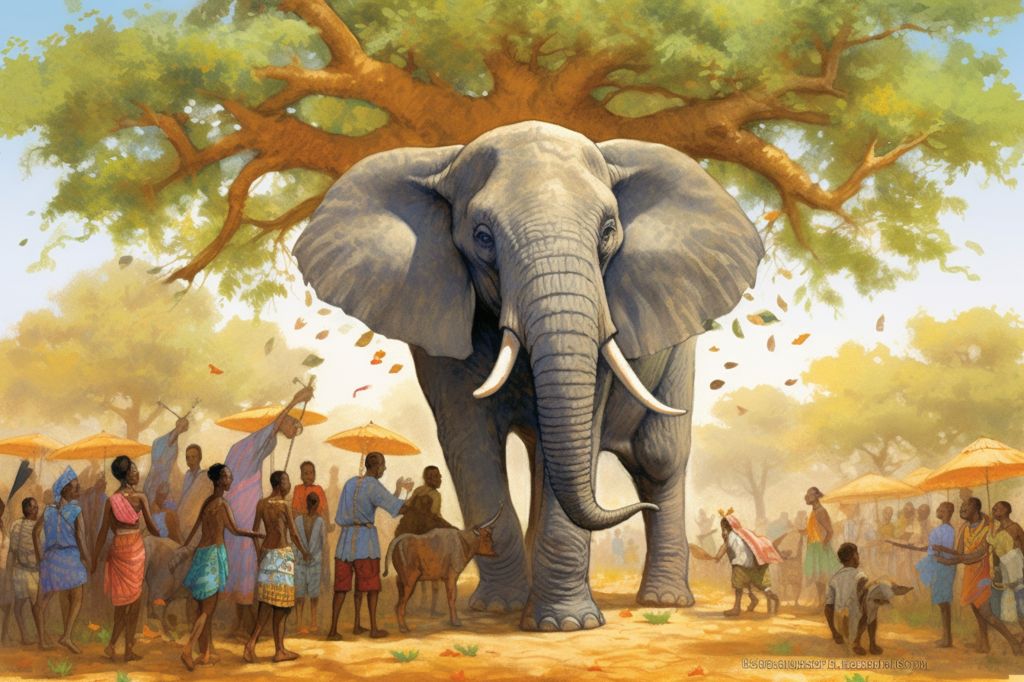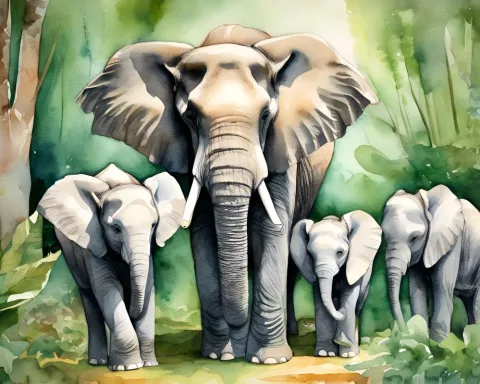In the vast plains of South Africa, a unique bond exists between African elephants and the Marula tree. This centuries-old relationship sets the stage for a fascinating tale of nature, culture, and tradition, intertwined with the creation of a beloved South African beverage: Amarula Cream Liquor.
The Elephants and the Marula Fruit
The African elephant is naturally drawn to the fragrance of the marula fruit. When the fruit on the ancient Marula trees ripens, the elephants gather beneath the trees. This subtle yet powerful signal has been passed down from generation to generation and shapes the human-elephant bond and understanding of the annual marula harvest.
The Marula Harvest
Upon witnessing the elephants’ arrival, locals in the nearby villages know that the fruit is ripe and ready for harvest. Excited villagers leave their homes to hand-pick the delicious fruit that has fallen to the ground. Later, they sell them to Amarula, the South African liquor company responsible for crafting the delightful Amarula Cream Liquor.
The Importance of the Marula Tree
The Marula tree is a member of the same botanical family (Anacardiaceae) as the mango and cashew. It holds significant importance in African ecosystems. The elephants contribute to the balance of nature and the continuation of the marula tree’s growth and survival by consuming not only its fruit but also its bark and branches. The harmonious relationship formed between the elephant and the Marula tree is an extraordinary testament to the interconnectedness of nature.
The Annual Marula Harvest
Interestingly, the marula fruit is available for harvest just once a year, between January and February. This brief period adds to the excitement and importance of the annual event, which is a highlight of the year for local communities. It brings everyone together in a way reminiscent of blackberry and fruit picking in the United Kingdom.
The Amarula Cream Liquor
The Amarula Cream Liquor, derived from the sweet marula fruit, has gained international recognition and admiration. Its success further emphasizes the significance of the bond between elephants and the Marula tree. As the Amarula story unfolds, it sheds light on the importance of preserving and cherishing the natural world, where humans and animals can coexist in harmony.
Preserving the Natural World
The intriguing narrative of the elephant and the marula fruit, intertwined with the production of Amarula Cream Liquor, reflects the incredible power of nature and the role it plays in shaping human culture. The tale serves as a constant reminder of our interconnectedness with the natural world and the significance of maintaining that delicate balance.
Such stories, rich in history and tradition, allow us to appreciate the intricate relationship between humans, animals, and the environment. As we continue to learn from and respect the instincts of these magnificent creatures, we can work together to preserve the beauty of nature and the ancient wisdom it holds. In doing so, we can ensure that future generations can continue to marvel at the enchanting dance of elephants and marula fruit and the captivating tales it inspires.










